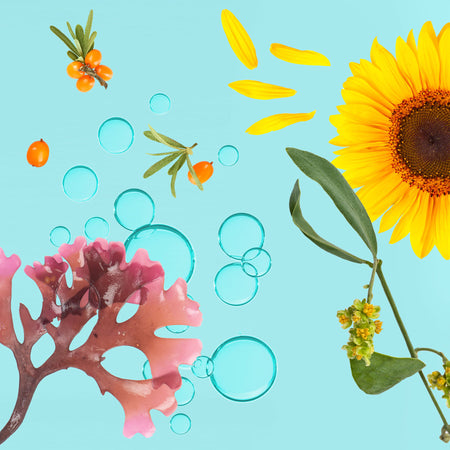June 30 2022 – Charlotte Flather

Let’s talk Menopause and the Mind
The menopause is a natural part of ageing, usually occurring between the age of 45-55 as women’s oestrogen levels decline, however there are women who experience the menopause before the age of 40.
The symptoms of menopause vary from woman to woman but can be severe and really impact your day to day activities.
I believe it’s important for all of us to talk about menopause - not only women and not only those of menopausal age, as it can be a worrying and isolating time in a woman’s life that also affects those around her. Talking about the menopause helps others to become more familiar with the many, varied challenges that women going through these changes may be facing.

I like to talk about my own experience of menopause, in the hope that through my personal story, others will relate, perhaps find some answers, or feel they can start a conversation themselves.
Having spoken to many women, I realise we all have different experiences. Some positive and some difficult. There definitely isn’t one route or remedy that fits all; we are all so individual and unique, and the way menopause affects us differs greatly, so it may mean trying a few different options before you find one that works for you.
My menopause has been life changing, and not necessarily in a good way! Some days I look in the mirror and don’t recognise myself. Throughout, I have suffered from a very low mood, terrible anxiety, insomnia, low self esteem and a real lack of confidence in social situations.
The circumstances of our lives are always changing, and my menopause happened to coincide with my children leaving the family home. The empty nest had a huge effect on me emotionally, as I no longer felt needed in the same way, and it took me a long time to find a new, positive focus.
When you find this happening to your body and mind, you almost have to start a new chapter. My lovely husband, Simon, is incredibly supportive - and I have to admire his patience! He has done so much reading about the menopause, but can find it hard to relate because it is so different for each woman. Communication with your nearest and dearest, and being able to tell them how you’re feeling, is vitally important during this time.

I gradually realised a new focus might help to alleviate some of the emptiness I was feeling. I started Sereia as part of my new chapter, to help women like me discover how much self care contributes to our lives. Not only helping us to relax, taking care of ourselves has a positive effect on our self esteem, and most importantly boosts our overall mental health, which is critical to living healthy lives and nurturing relationships.
I am sharing some signs and symptoms to look out for, and if there is anything here that you relate to, then please contact your GP. It’s important to know that there is help out there, and there is no shame in this part of our female journey.
The most common symptoms of the menopause are:
Symptoms can last for around four years after your last period but for many women can last for much longer.
There are some amazing treatments available, so speak to your GP about the options. The treatments available are:

Some of the things that have helped me most are where I am able to take back a little control over the changes happening to my body. Many women find their skin changes and becomes much drier. You may notice the skin on your tummy, legs and bottom becoming uneven and bumpy due to the lymphatic system slowing down.
This can be greatly improved by regular body brushing and gentle skin massage. I recommend daily skin brushing using Sereia’s Cactus Sisal Body Brush, followed by massaging these areas in the shower with the Smoothing Body Mitt. Finally treat skin to a much-deserved boost of hydration with either Firming Body Oil or Shape and Tone Body Butter.
Practicing this mini ritual every day for two weeks is a positive way to add some self care to your day, plus you will notice a real difference in the look and feel of your skin.

I will leave you with some key things to take away from this article, which have truly helped me:
You are not alone. If you are struggling with a persistently low mood, contact your GP or Mind, the registered charity who can guide you to someone to talk to.
Keep friends and family close. Talking to your nearest and dearest is therapy in itself. Try to be open about ways they can help you and answer their questions honestly.
It’s important to look after you! Small things can make a real difference. Wherever you can, add some self care to your daily routine – whether it’s a delicious healthy meal, getting out for some exercise or treating yourself to a pamper. Feeling like you’re taking some control of your symptoms can make a real positive impact to your day.

Tagged: Body confidence, Menopause, Wellbeing








